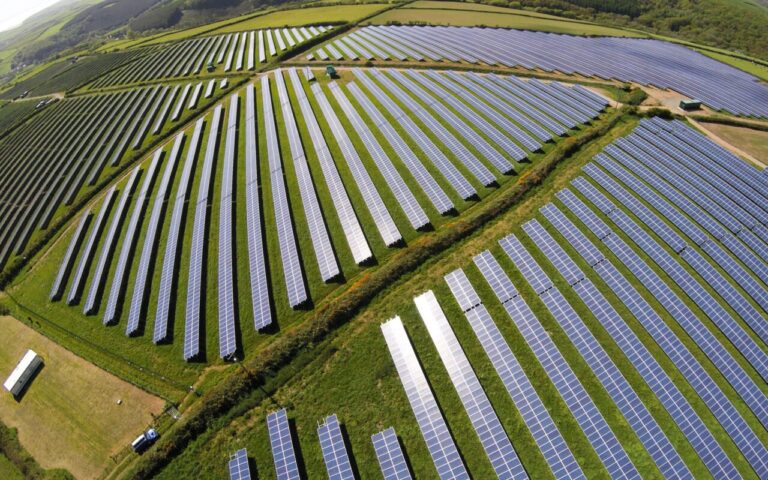New data from the UK government has shown that the UK now has 16.9GW of solar capacity online at the end of June 2024.
The latest statistics from the Department of Energy Security and Net Zero (DESNZ) show that UK solar capacity has grown by 8.5% (1.3 GW) over the past year, capacity spread across more than 1.5 million residential and commercial solar installations.
In 2023, 196,782 new solar projects came online. This represents the second-highest number of new solar projects in a given year, surpassed only by the 208,586 installations in 2011.

However, the document’s commentary notes that the amount of new capacity installed in 2023 was only the fifth highest on record, as most new installations were small in size.
By June 2024, 15,807 new installations were completed, representing a capacity of 65 MW. While this is a lower number than May’s 16,333, it is much higher than the average figures between 2016 and 2021, and just above the average number of monthly installs over the past twelve months (15,000).
Domestic solar energy
The majority of solar PV installations in Britain are domestic, with just over 1.4 million domestic solar installations currently operational in Britain, out of almost 1.6 million installations in total . However, these only account for 30% of Britain’s total solar capacity. By June 2024, 78% of new controls were installed on a residential building, totaling 48 MW.

Where do we go from here?
These statistics provide a useful basis for measuring the success of the new Labor government’s plans to boost the solar sector.
A new report from the National Engineering Policy Center (NEPC) has stated that accelerating the rollout of solar power is key to meeting the UK’s 2030 clean energy targets, thanks in part to the speed at which solar farms can are deployed and the relative ease of scaling up solar energy projects and has urged the new government to deliver on its promises to the sector.
For its part, the new government has already taken steps in this area: the recent relaunch of the Solar Taskforce was praised by the wider solar industry, and just ten days after taking power the Labor government issued Development Consent Orders (DCOs ). for three major solar energy projects where decisions were previously postponed, in some cases repeatedly, by the previous Minister of Energy.
Meanwhile, Ed Miliband, DESNZ’s newly appointed Secretary of State, has worked to allay fears that solar farms pose a threat to food safety, making statements to the House of Commons on the subject and engaging with the leader of the National Farmer’s Union NFU). This follows statements by his predecessor, Claire Coutinho, who urged municipalities to refuse applications for solar farms on agricultural land, raising public fears of food insecurity.


